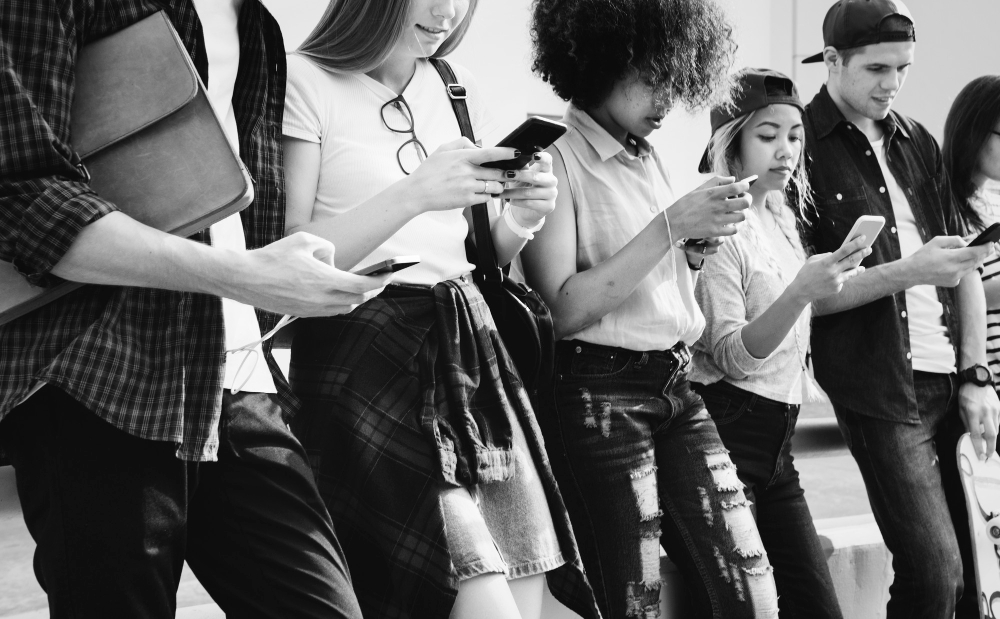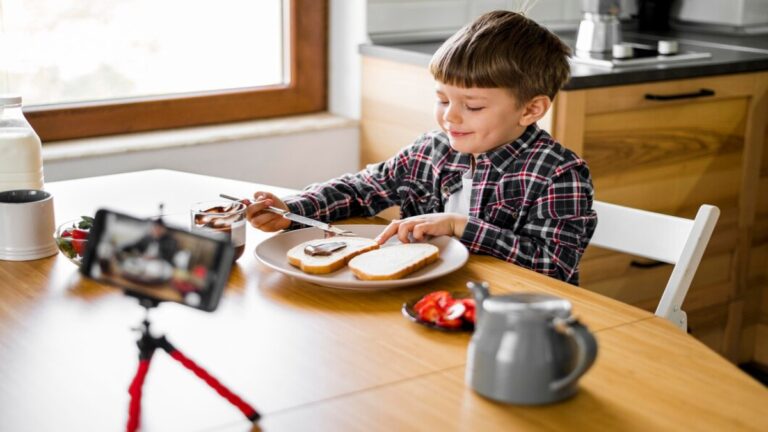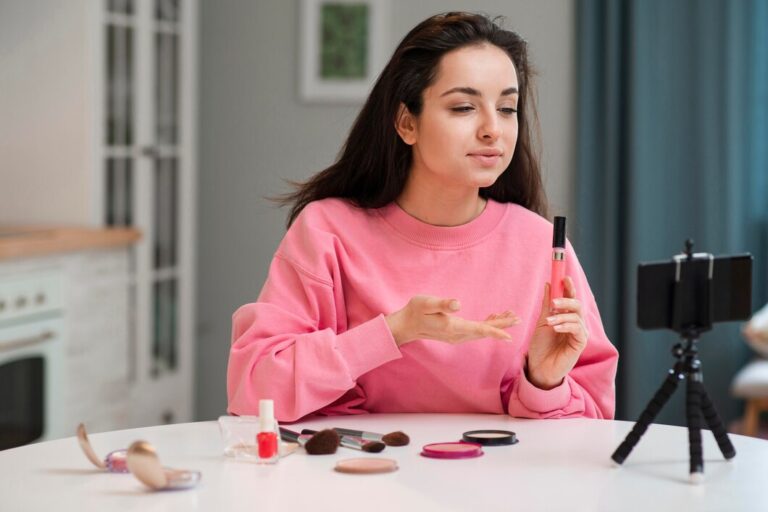
In our digitally driven age, social media’s influence on how we connect with others is impossible to ignore. Platforms like Instagram, WhatsApp, Snapchat, and Facebook have revolutionized how we interact with each other—shrinking distances, blurring boundaries, and giving us 24/7 access to friends, family, and acquaintances. Yet, behind the glossy filters and curated feeds, a growing body of research and anecdotal evidence suggests that social media may be silently reshaping the way we form, maintain, and experience relationships. From strained family ties to shallow friendships and emotional isolation, it’s crucial to understand the psychological impact of social media on our relationships.

1. The Double-Edged Sword of Digital Friendships
Convenience vs. Authenticity
Social media makes staying in touch easy—almost too easy. You can “like” a friend’s photo, drop a quick comment, or send a meme and feel as if you’ve maintained the relationship.
However, many of these interactions are surface-level. The effects of social media on friendships often include a loss of emotional depth. Real bonding takes time, vulnerability, and face-to-face interaction—things that emojis and gifs simply can’t replace.
Quantity Over Quality
Platforms reward numbers: followers, likes, and friends lists. But how many of those hundreds of connections are real, mutual friendships?
Studies show that while people may have more online connections than ever, they often report feeling lonelier. This paradox speaks to a central concern: that social media creates an illusion of closeness without the substance.
The Highlight Reel Effect
One of the subtler emotional impacts of social media is the constant comparison it encourages. Seeing friends post about amazing vacations, perfect relationships, or career achievements can lead to jealousy, inadequacy, and resentment.
This not only damages our self-esteem but also skews how we perceive our relationships—breeding insecurity and distance between people.
2. Real-Life Relationships in a Virtual Age
How Does Social Media Affect Real-Life Relationships?
The answer is nuanced. On one hand, social media allows couples to stay in touch across distances, share memories, and communicate daily.
On the other hand, it opens doors to misunderstandings, surveillance, and even infidelity. Constant online availability can blur personal boundaries and lead to unrealistic expectations in relationships.
Research suggests that couples who frequently check their partner’s social media may experience more conflict and lower satisfaction. What starts as curiosity can quickly spiral into obsession—“Who’s that commenting on your post?” or “Why didn’t you like my photo?”—leading to mistrust.
The Performance of Love
Romantic relationships are increasingly being “performed” online. Anniversaries are celebrated with photo dumps. Date nights are livestreamed.
While it may look sweet, this can lead to performative affection rather than genuine connection. When a relationship relies more on public affirmation than private connection, its emotional core can begin to weaken.
3. The Disruption of Family Dynamics
The Impact of Social Media on Family Communication
The impact of social media on family communication is another area where digital tools can both help and harm. On the plus side, families separated by distance can stay updated on each other’s lives. Grandparents can see photos of their grandchildren, siblings can share daily moments, and family WhatsApp groups can provide constant connection.
However, in physically present families, screens can serve as walls. Dinner tables often see everyone glued to their phones instead of engaging in meaningful conversation.
Parents may feel neglected when teens prioritize Snapchat streaks over family time. Similarly, children may feel emotionally distanced from parents who are preoccupied with their own social media habits.
Digital distractions reduce the quality of family time, making it harder to nurture trust, understanding, and emotional closeness. In extreme cases, overuse of social media can even lead to emotional neglect within families.
4. Emotional Toll: Loneliness, Anxiety, and Comparison
The Silent Spread of Loneliness
It may seem paradoxical, but despite being more “connected” than ever, people report increasing feelings of loneliness.
One reason is that online interactions lack the full range of human emotional cues—tone, facial expressions, touch.
This lack of emotional richness means that even frequent online contact can’t replicate the warmth of a face-to-face conversation or a shared laugh in real time.
The emotional impact of social media is deeply felt in this loneliness epidemic. People often scroll endlessly through feeds, seeking connection, yet walk away feeling even more isolated.
Likes and comments can never fully replace real emotional intimacy.
Social Comparison and Anxiety
Social media platforms thrive on curated perfection. Whether it’s the ideal relationship, the dream job, or the flawless appearance, users constantly compare themselves to others.
This leads to anxiety, lowered self-worth, and even depression—especially among teens and young adults.
This impacts relationships, too. If one partner constantly compares themselves or their relationship to others they see online, it can foster dissatisfaction, jealousy, and tension. Over time, this creates emotional strain that’s difficult to repair.
Fear of Missing Out (FOMO)
FOMO is another emotion closely linked to heavy social media use. Seeing friends out at events you weren’t invited to or partners engaging with others can lead to feelings of exclusion and insecurity.
These emotions can corrode trust and happiness in both friendships and romantic relationships.
5. Blurred Boundaries and Digital Overload
Always “On”
Being constantly reachable through social media means we’re rarely mentally or emotionally off the clock. This perpetual state of availability can be exhausting. It also prevents people from being fully present in real-life relationships.
Whether it’s a partner scrolling through Twitter during a conversation or a friend checking Instagram during a coffee date, the message is clear: “This app matters more than you right now.” When this message is repeatedly conveyed, it slowly erodes trust and weakens the relationship.
Oversharing and Privacy Erosion
Another concern is the erosion of boundaries. People often overshare online, revealing intimate details of their lives. While this may feel freeing, it can also expose vulnerabilities and create misunderstandings.
Couples, in particular, may face friction over what should or shouldn’t be shared. A partner might feel betrayed by a post that aired private issues or disrespected their boundaries. These small digital missteps can snowball into serious emotional breaches.
6. How Social Media Affects Mental Health and Relationships
Interlinked Outcomes
The relationship between mental health and relationships is well-documented: when your mental health suffers, so do your relationships—and vice versa.
Social media affects both. Excessive screen time, online arguments, exposure to toxic content, and cyberbullying can lead to poor mental health outcomes like depression, anxiety, and low self-esteem.
When people are emotionally unwell, their ability to communicate clearly, express empathy, and resolve conflict declines. This means that the way social media affects mental health and relationships is intertwined and cyclical: bad online habits impact mental health, which in turn affects relationship quality.
The Rise of Parasocial Relationships
Social media has also given rise to one-sided, parasocial relationships with influencers, celebrities, and content creators. While these connections may provide a sense of belonging, they aren’t real relationships.
People may invest emotional energy in these digital personas at the expense of nurturing real-life bonds.
7. The Role of Algorithms in Relationship Dynamics
Behind every feed is an algorithm designed to keep you scrolling. These algorithms often prioritize sensational, polarizing, or emotionally charged content—things that provoke reaction.
Unfortunately, this can have a divisive impact on relationships, especially when it comes to differing worldviews.
Political arguments, lifestyle judgments, and moral debates often become battlegrounds on platforms like X (formerly Twitter) and Facebook. Relationships strained by algorithmically amplified conflict may suffer long-term damage if not addressed with empathy and understanding.
8. How to Rebuild and Protect Real Relationships
Conscious Usage
Being aware of the impact of social media on connections is the first step. Limit screen time. Turn off notifications. Make room for digital detox weekends. Use technology to enhance relationships, not replace them.
Intentional Communication
Can you remember the last time you picked up the phone just to chat with a friend? Or spent uninterrupted time with your partner or children? Reintroducing these old-fashioned, deeply human acts of connection can counteract the shallow interactions promoted by social media.
Setting Boundaries
Agree with loved ones on “no phone zones” or times (e.g., at the dinner table or during date night). Communicate openly about what you’re comfortable sharing online. Respect privacy and individuality.
Practicing Digital Empathy
Always keep in mind that there’s a real person with emotions on the other side of the screen. Be kind. Think twice before commenting or posting something that could hurt someone. Support friends and family members who may be struggling with social media pressures.
Final Thoughts
The psychological impact of social media on our relationships is profound, complex, and ever-evolving. While social platforms have made it easier than ever to connect, they have also made it easier to disconnect emotionally.
From the effects of social media on friendships to the impact on family communication, and the deep ways social media affects mental health and relationships, the digital world challenges our most intimate bonds in subtle but significant ways.
However, by becoming more mindful of our digital behaviors, setting healthier boundaries, and investing in real-world connections, we can reclaim the authenticity, depth, and emotional richness that make relationships truly fulfilling.




